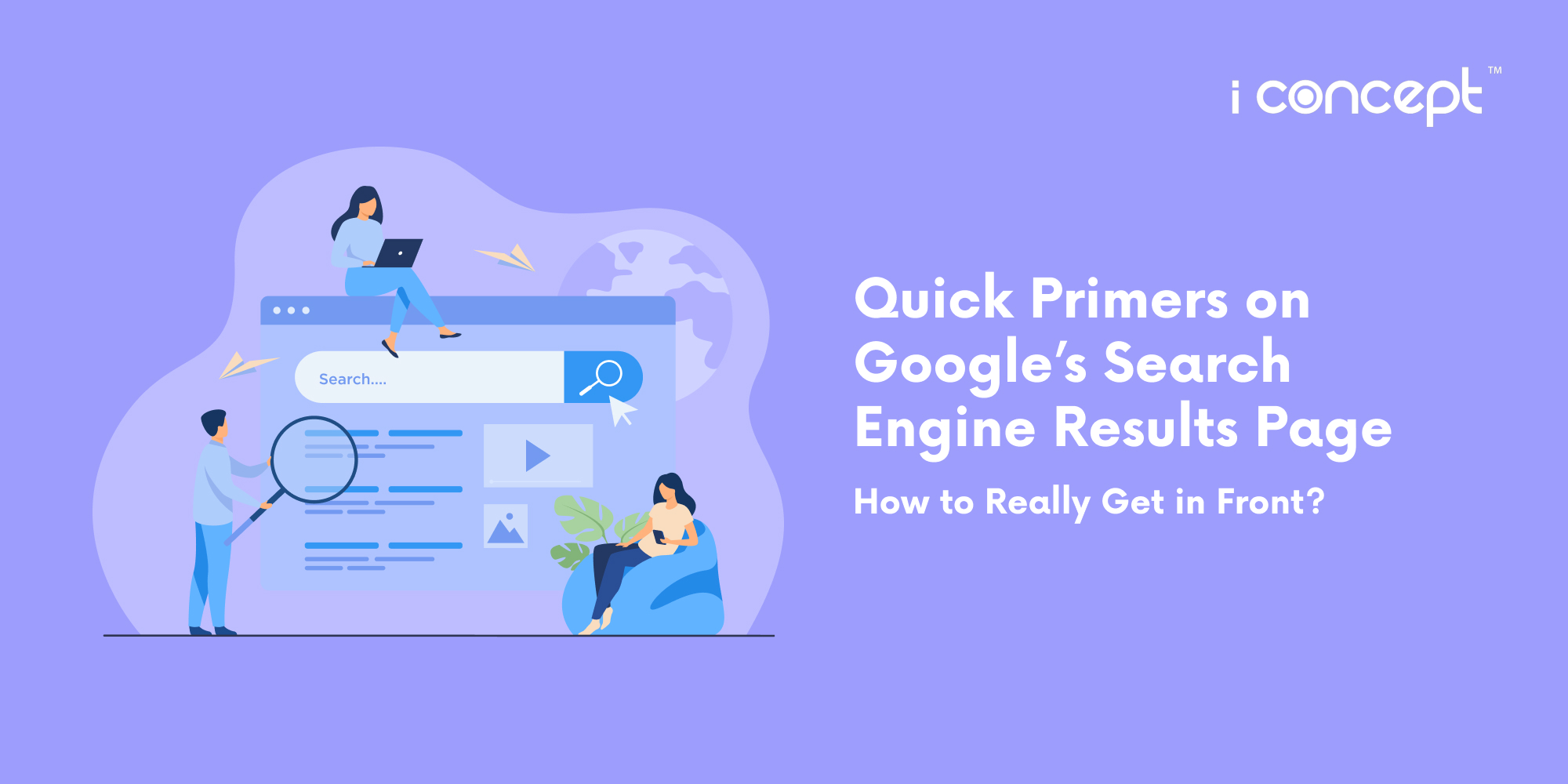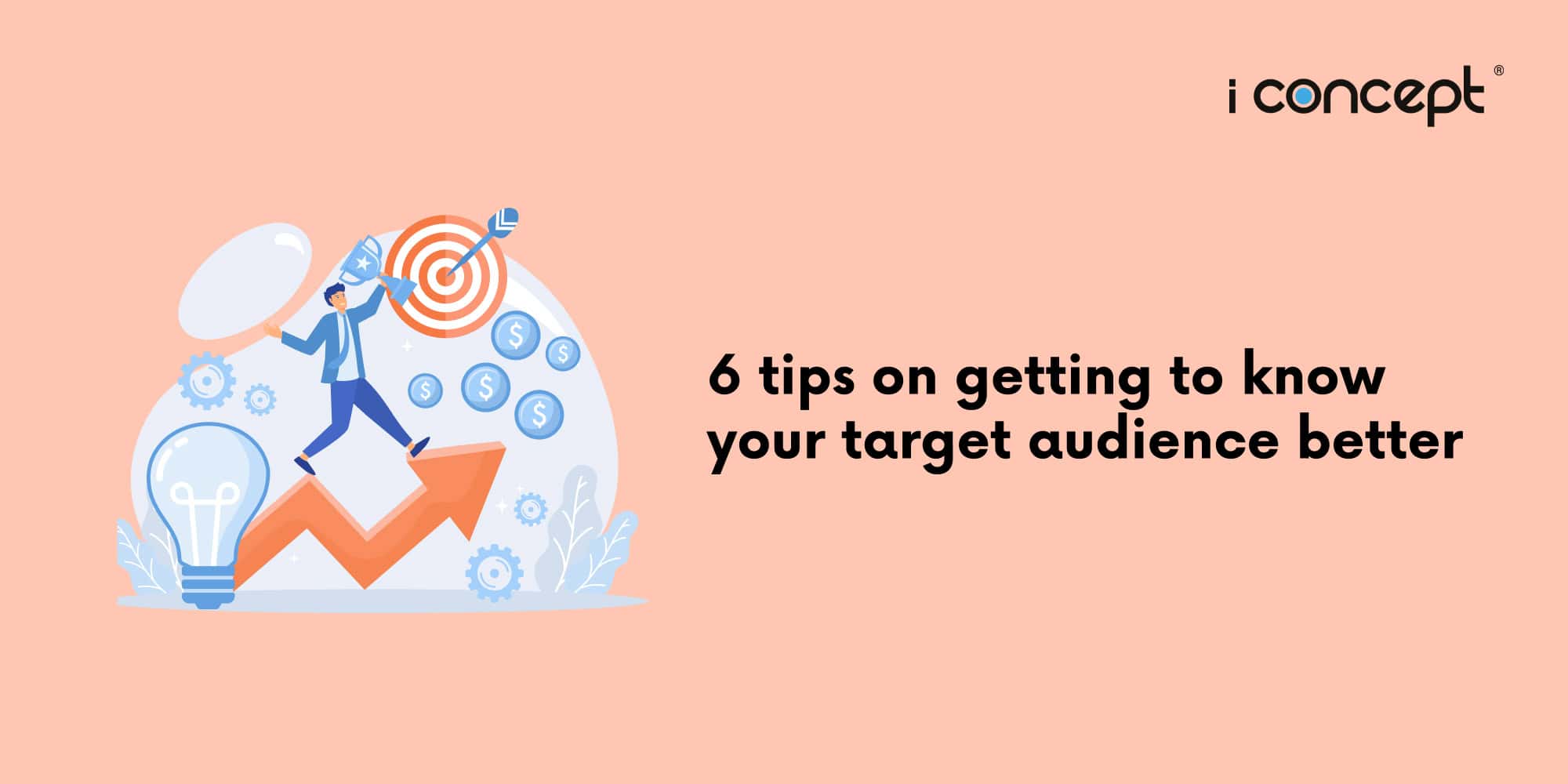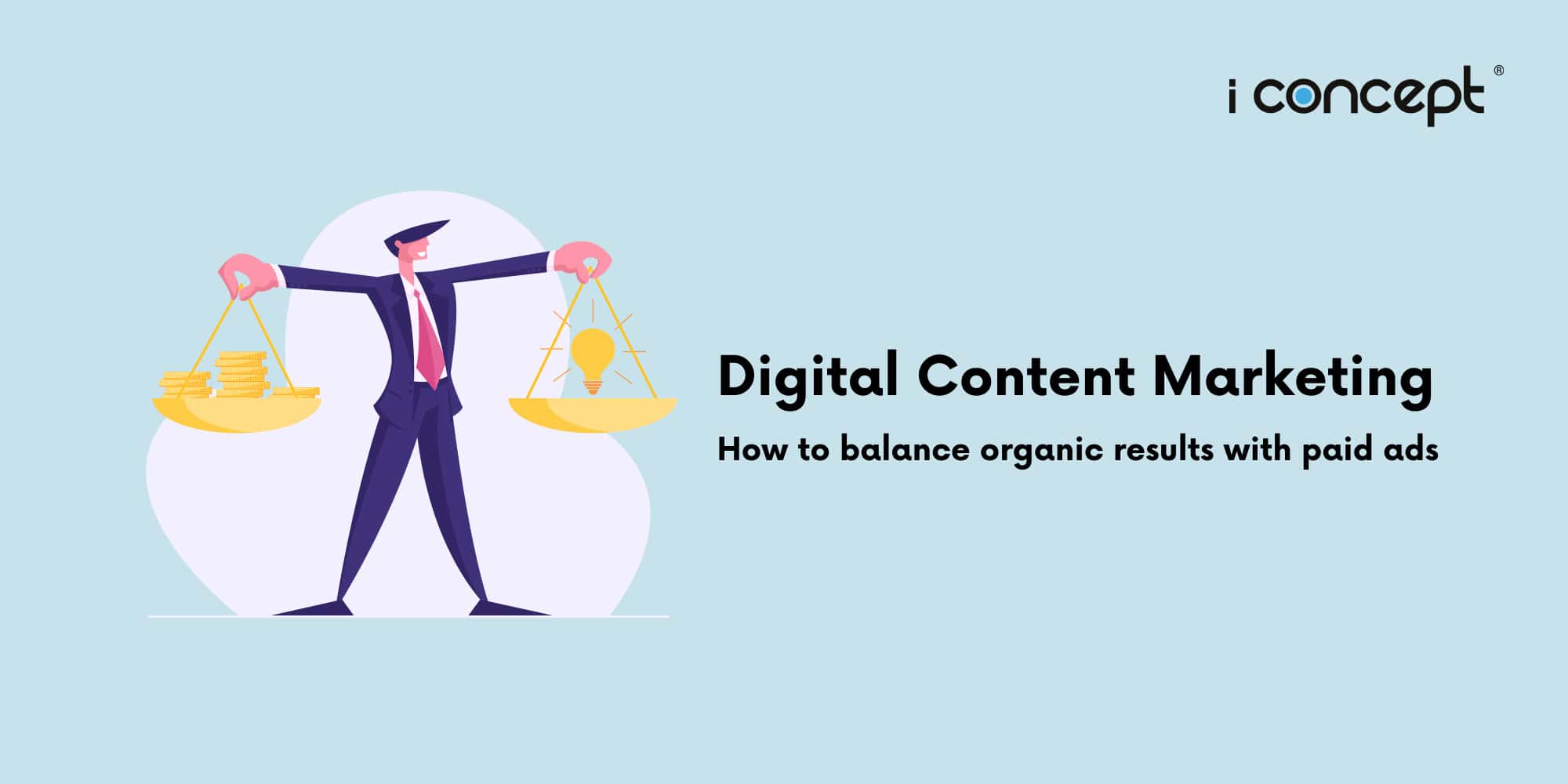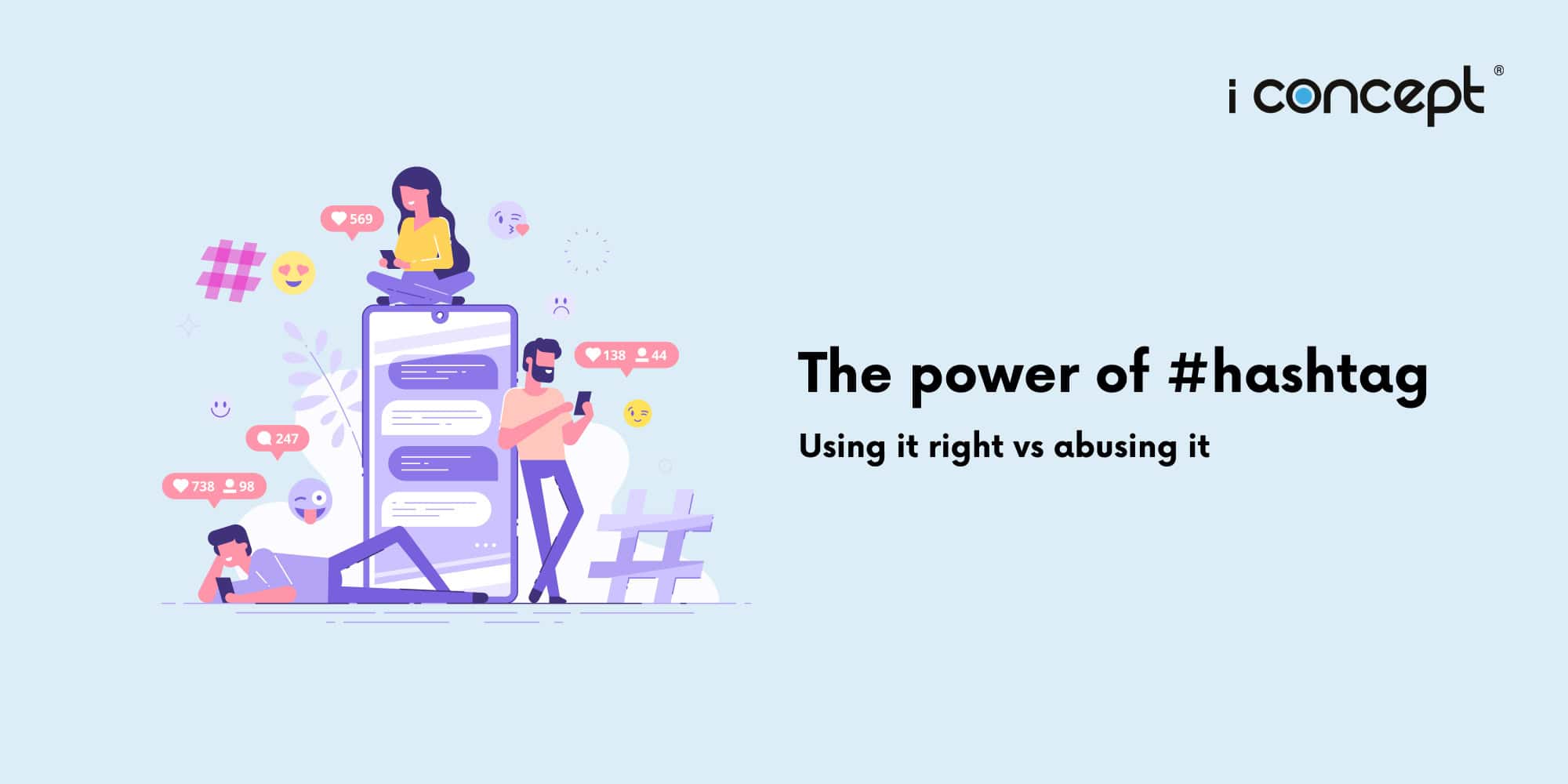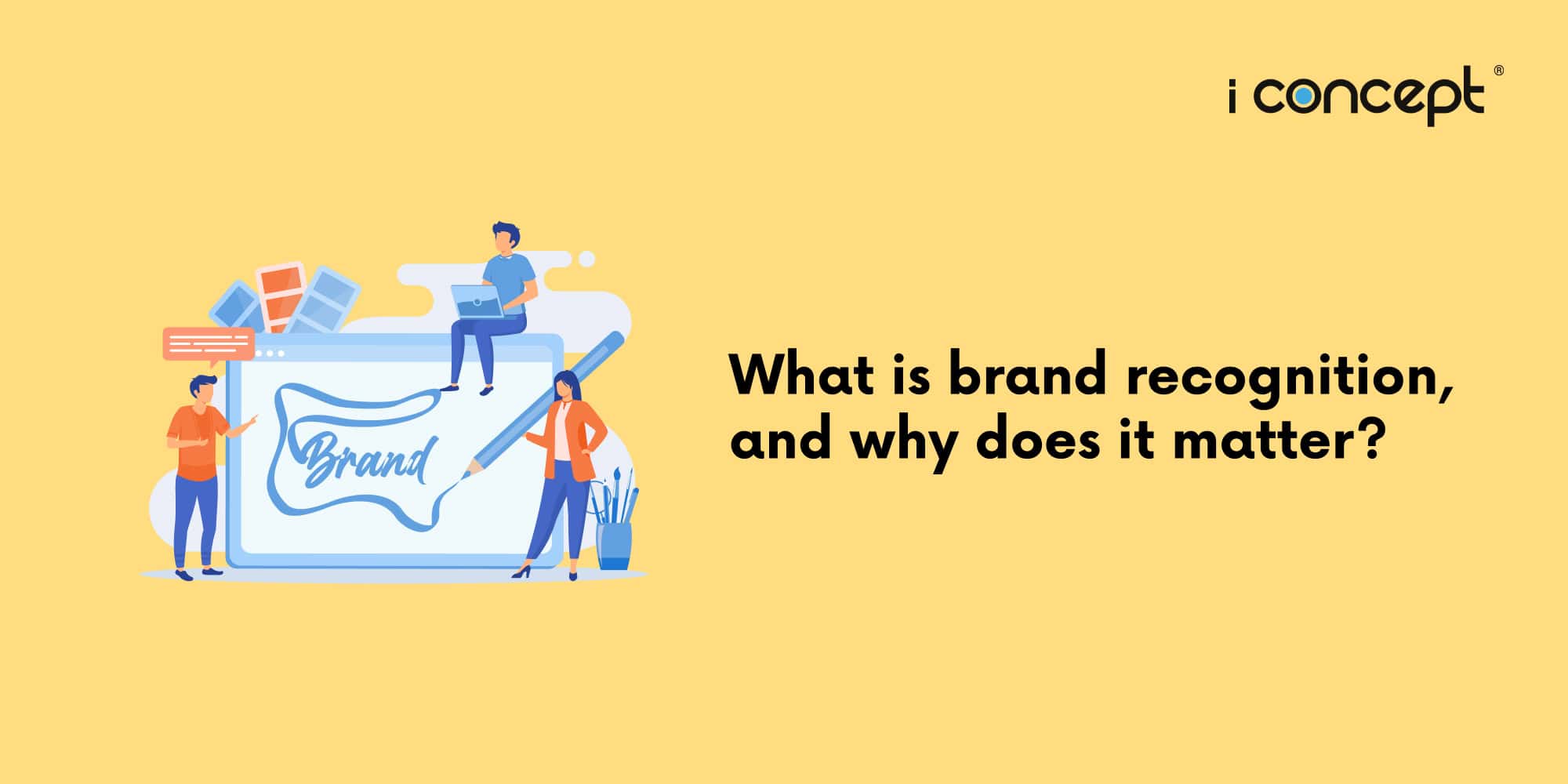“You wanna be on top?” Tyra Banks sings. But of course, which credible business or personality would not want to be noticed, especially when it comes to landing themselves on the top position on Google’s (or other search engines) results page?
As a top creative agency Singapore, the I Concept team, along with our digital solutions, is here to help you get to the top.
Known commonly in the digital marketing world as SERP, or Search Engine Results Page, it is the page that a search engine returns after a user submits a search query. In addition to organic search results, SERPs usually include paid search and pay-per-click ads.
Thanks to search engine optimisation (SEO), ranking position on a SERP can be highly competitive since users are more likely to click on results at the top of the page. With the launch of schema markup, or structured data used by search engines, SERPs are becoming much more complex to try to anticipate user needs.
More than 90% of consumer traffic goes to websites that rank on the first page of Google search results. If your website isn’t there yet, don’t worry. There are strategies you can use to help boost your ranking.
Here at I Concept, our digital marketing team has narrowed 7 time-proven strategies in search engine optimisation that have shown promising results through the years. While they may not necessarily get your business’ website to the front page in a jiffy, they should help it climb up the rankings gradually (with regular optimisation)
- Create Content that Adds Value
One of the most critical steps to ranking your site higher is by creating valuable, high-quality content that people will want to read and link to. 90% of the most successful content marketers in a study put their audience’s information needs as a top priority.
When your content offers value to your audience, it will make them stay on your site for longer. This can positively affect your rankings, according to experts, who identified that there is a prominent correlation between longer dwell time and higher search engine rankings.
And you probably already know that backlinks affect your rankings. Studies have proven that links from highly-relevant sites with high authority could help you rank your website higher on Google.
- Create More Long-Form Content
You can also rank your website higher on Google by creating more long-form content. Long-form content lets you go in-depth into whatever topic you’re discussing, making it more informative and of higher value. So it tends to get more engagement, increasing your dwell time and helping you rank your site higher.
Besides, people love sharing long-form content. A recent analysis of 100 million articles, found that long-form content gets more social shares. Articles between 3,000 and 10,000 words got the most shares, followed by articles between 2,000 and 3,000 words. More social shares will result in higher visibility and increased traffic, which is crucial to get your website to the top of Google.
- Improve Your Internal Linking Structure
Internal links help you establish proper site architecture. Which helps Google smoothly crawl through every page on your site and list them in relevant search results. So if you want to get your website to the top of Google search results, you need to have a proper internal linking structure.
An optimal website structure is in the shape of a pyramid with minimal links between the homepage and other pages. Instead, you’ll have the homepage linking to main category pages, which will in turn link to product pages.
Even when linking blog posts, you can try having a detailed and comprehensive pillar post on a specific topic. And then interlink it with other relevant posts that discuss specific tactics or subtopics in detail.
For instance, if you want one pillar post on SEO as a whole, you can link to several other posts that discuss specific SEO tactics like anchor text optimisation and backlink strategies.
- Optimise Your Anchor Text
Anchor text optimisation is another crucial step to get your website to the top of Google search results. The anchor text you use to link to other pages can help Google understand what the page is about, helping it list the pages accurately
Using relevant keywords as anchor text is an excellent way to guide search engines and help them understand your page content and rank your site higher.
There are five different types of anchor texts that you should know about:
- Exact Match Anchor Text – An exact match anchor text uses a keyword mirroring the page you’re linking to. For example, “SEO strategies” linking to a page that covers SEO strategies would be an exact match anchor text. These are ideal for helping Google understand what the linked-to page contains.
- Partial Match Anchor Text – This type of anchor text includes a variation of the main keyword on the page you’re linking to. For example, “content optimisation strategies” linking to a page that talks about content optimisation. These are also an excellent alternative to exact match anchor texts as they’re still relevant to the linked-to page topic.
- Branded Anchor Text – As the name suggests, this type of anchor text uses a brand name. For example, “I Concept” linking to an I Concept blog post. Overusing this type of anchor text may be considered suspicious and manipulative. Avoid using it more than once in your blog posts.
- Naked Link – When a URL acts as an anchor, it is considered a naked link anchor. These anchors may not be the best option if you are trying to link to content within blog posts, as they could hamper reader experience.
- Generic Anchor Text – Generic anchor text is a generic word or phrase that links to other pages. “Learn more” or “Click here” are some examples of generic anchor text. They are not very ideal for SEO because Google has no way of understanding the content of the linked-to page and its relevant to the linking page.
Google has expressed that there are no penalties for over-optimising your internal linking anchor texts. This means that you can use exact match anchor text however much you want to for your internal links.
That said, it’s still a good idea to use synonyms and variations to maintain a natural flow in your articles instead of trying to force exact match anchor text.
- Display Rich Snippets in Search
Displaying rich preview snippets in your search engine results is one of the best ways to get more clicks to your site. This, in turn, helps improve your ranking and can eventually help you get your website to the top of Google search results.
The Structured Data on your page HTML helps Google in displaying accurate rich snippets for searchers to see. It could include information such as price, rating, stock availability, and more.
So searchers get an accurate picture of whether or not the product or content is relevant to them. This is a great way to minimise bounces as well, since most of the clicks will be from relevant searchers.
Google has also clarified that the use of Structured Data makes it easier for Google to understand in which searches it should display your page. In other words, it improves your targeting and makes it easier to rank your page for relevant search results even if it doesn’t directly affect ranking
The more you rank for relevant keywords, the more relevant traffic you’ll get. All of this helps rank your site higher over time.
- Optimise Your URLs
As minor as it may seem, your URL structure is an important consideration to improve your ranking. On its own, it may not have a massive impact on your search engine ranking.
But if you want to get your website to the top of Google search results, you can’t afford to ignore even the minutest factors that can influence your ranking.
Here are some of the best practices to create SEO-friendly URLs:
- Keep them short and to the point. A study found that the top 10 results on Google had an average of 37 characters in their URL. URLs containing 35 to 40 characters seem to perform much better, according to their study.
- Use hyphens instead of underscores to separate your words. This makes it easier for Google to understand what your page is all about.
- Add keywords naturally to improve relevance signals and help Google understand where to rank your site. Although this is a small factor, it still plays a crucial role if your end goal is to get your website to the top of Google.
Avoid using extraneous characters like @, &, $, or % in your URL, as they can confuse search engine crawlers. Only 0.194% of the top 100 results for 1,000 results across multiple industries contained extraneous characters in their URL.
- Optimise Your Meta Tags
Like your page URL, your meta tags are minute but important factors that can influence your page ranking. You will need to optimise both your title tag and your meta description to help both search engines and users in understanding your page content.
This can help increase your click-through rate, while also allowing Google to rank your page in relevant search results.
Here are a few best practices to help you optimise your meta tag and get your website to rank higher:
- Keyword presence in your title can make all the difference between ranking 1st and 2nd. This makes it crucial to optimise your title tag with relevant keywords.
- Similarly, you’ll need to optimise your meta descriptions with relevant keywords as well. But make sure not to overstuff it with keywords just for the sake of it. Use them naturally so that the description flows well and is understandable for both search engines and humans.
- Keep your titles short, catchy, and to the point. The average title length in organic search results is 55 characters. But you can go over 60-65 if need be, without exceeding the 70-character limit.
- Summarise the content of your page using meta descriptions. Avoid making them too lengthy, as anything over 160 characters might not display fully in Google search results.
Getting the Help on SEO with I Concept
Does all these optimising matters sound too foreign and difficult for you? Are you considering enlisting the help of digital marketing professionals to help you? If you are on the hunt for all-round digital solutions, then I Concept Singapore should be at the top of your search.
We’re a top creative agency Singapore, offering a range of digital marketing solutions, from website and e-commerce store design, and digital marketing (including Search Engine Optimisation and digital copywriting). Let’s start ranking and be seen. Speak with us now!
